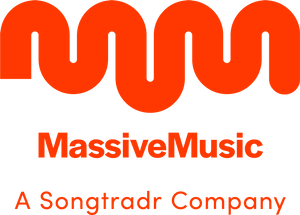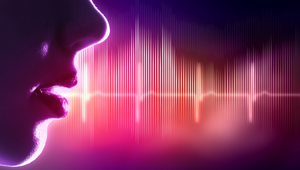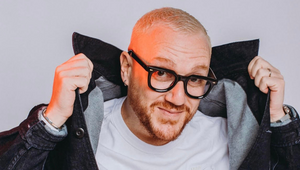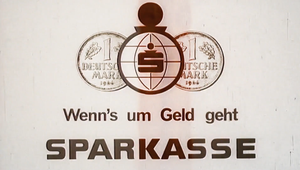
Thinking in Sound: The Alchemy of Sound and Image with Inken Bornholdt

Growing up in Berlin, Inken Bornholdt, creative producer at MassiveMusic Berlin, has a background in music consultancy and culture marketing, having worked for audiovisual / electronic music festivals as well as in-house at consumer electronics brands. At MassiveMusic, Inken translates client briefings into creative ideas covering areas of music supervision, music activations and bespoke music production.
LBB> When you’re working on a new brief or project, what’s your typical starting point? How do you break it down and how do you like to generate your ideas or response?
Inken> When creating music for a campaign film, I usually set out with the ‘why’, understanding the campaign’s core purpose, message and creative idea. I put myself into the viewer’s perspective. What emotional response do we want to trigger? What role can a certain track play to help support or amplify what is being communicated?
In this exploration stage, I’m scanning my brain for associations, making connections between the campaign and culturally relevant works or ideas. Next, I come up with a music concept that also includes musical references and, once discussed and signed off, it’s production time. The production process of course varies, depending on if it’s acquiring a license of an original track, a creative rework of an original track, or an entirely new bespoke composition. If it’s the latter, I usually make a brief and work with either our in-house composer or freelance composers to create a track that reflects the music concept.
Many of the composers we work with have musician careers and do bespoke as an additional income stream. This plays into my approach for bespoke – my aim is to service clients with a track that can stand on its own. A track that does not feel homogenous or consciously made for advertising. It’s almost like reverse engineering; for the final result a track made with a certain, let’s call it, ‘music integrity’ can really make a difference.
LBB> Music and sound are in some ways the most collaborative and interactive forms of creativity - what are your thoughts on this? Do you prefer to work solo or with a gang - and what are some of your most memorable professional collaborations?
Inken> Nothing gets me more excited than the moment in a project where you realise that the output is bigger than the sum of its parts. We recently made a five-piece documentary score for ‘The Bookcase of Tolerance’, a social impact campaign for the Anne Frank House in Amsterdam. Between the director and us, there was a real mutual appreciation for each other’s crafts. The nicest part about this job is that you get to elevate a creative vision from another discipline and together you create something new.
LBB> What’s the most satisfying part of your job and why?
Inken> There’s an alchemy that happens when you put sound and image together. Music can completely transform an edit, it can prime you to feel in a certain way, and it can elevate the moving image. We react a bit quicker to sound than we react to visual stimuli. So probably the most satisfying part is to cater to this ‘transformation’ of making a moving image ‘better’ by adding the right music and sound.
Every once in a while, you get to work on a project which requires a bit more of a progressive approach to music or a project that explores a new medium or new technology. So I get very inspired and hopefully some of my work inspires others too. In the end, it’s just a job of course, but that is probably the most exciting part of it: staying inspired and creating inspirational work that resonates with others.
LBB> Who are your musical or audio heroes and why?
Inken> Bass, those lower end and sub frequencies I’ve always been drawn to. Maybe this comes from just being exposed to sound (my dad studied acoustics and likes his hi-fi) or that techno was just everywhere in Germany when I was a kid. As most, in the lockdowns I missed club culture, but especially feeling those low-end frequencies resonating through my body. I felt I needed to hug a speaker. Music is physical intensity. Bass-heavy electronic music, dub, sound system culture have such a long history that I find very inspiring. Artists who play with the physical dimension of sound and frequencies I saw in different festival contexts, i.e. Sunn O))) or more recently Aisha Devi, probably have left a mark in my subconscious.
LBB> And when it comes to your particular field, whether sound design or composing, are there any particular ideas or pioneers that you go back to frequently or who really influence your thinking about the work you do?
Inken> I was just lucky to have friends around who make music and they would share silly things like what a Doom Compressor is and encourage me to make music. Fun and a real curiosity of spirit, integrity and progress, is what I look out for in people and maybe those inherent values also underlie some of my work.
LBB> When you’re working on something that isn’t directly sound design or music (lets say going through client briefs or answering emails) - are you the sort of person who needs music and noise in the background or is that completely distracting to you? What are your thoughts on ‘background’ sound and music as you work?
Inken> In a seminar at UdK, I studied ambient music and loved understanding the roots of the genre and what that entails - passive vs. active listening, whether music should be ‘useful’ or not. The whole spectrum from Erik Satie’s musique d’ameublement, Pauline Oliveros’ Deep Listening theory, to Brian Eno giving name to the genre, fast forward to Enya, and then apps or playlists for focus and increased productivity. To be honest, when really focusing on something, I prefer silence. At the office, we recently got one of these futuristic phone pods – it looks like a floating tank straight out of Space Odyssey. Working there feels like being inside a 360 degree noise-cancelling headphone. I love it!
Then, for other moments that require less focus, I sometimes stick to our shared office playlist where our team adds new tracks each week to stay up to date with new releases.
LBB> On a typical day, what does your ‘listening diet’ look like?
Inken> Usually a few hours of NTS, and I have a Saturday habit where I actively look for new music, and go through the latest releases fairly systematically. And then I have a Telegram group with friends where we share daily Bandcamp finds.
LBB> Do you have a collection of music/sounds and what shape does it take (are you a vinyl nerd, do you have hard drives full of random bird sounds, are you a hyper-organised spotify-er…)?
Inken> A few years ago, I got an old pair of CDJs. They are the model (800?) in-between, the one that is still missing the USB slot. I practiced a little, but my CD collection is fairly limited. Who knows, maybe like vinyl-only DJs, CD-only will become a thing in 2025? I should get back into it ;)
For better or worse (let’s not forget Spotify’s CEO has just invested in military defence technology), I use streaming services for research to create lists and libraries via mood, genre or editorial affiliation. For personal use, I go to Bandcamp. They basically are the ‘digital twin’ to a physical record collection. I buy music when I listen to it on heavy rotation or when I like to use it for a mix. I like their editorial recommendations and the sense of immediacy getting notified by artists on new releases. Also, you have to do your own research to find out what you want to look for and listen to.
LBB> Outside of the music and sound world, what sort of art or topics really excite you and do you ever relate that back to music (e.g. history buffs who love music that can help you travel through time, gamers who love interactive sound design… I mean it really could be anything!!)
Inken> For a long time, I thought my calling was in audiovisual art or 'new media’. I studied new media art, interned at an art gallery and I worked in the festival world, which was really informed by this ‘audiovisual turn’ in music, especially electronic music.
I remember long before I worked in this, I saw Etienne de Crecy with that giant light cube and thinking ‘fuck, this is cool’ and my interest in the AV world sparked there. It all comes from the old days of vjing in clubs, but with a much longer history. Oskar Fischinger, for example, was originally a painter and worked in advertising. In the 1920s, he experimented with film – back then, film was a completely new medium and artists were still figuring out where to take it, abstract art or narrative-driven.
Fischinger made abstract forms that were in sync to music, like drawing geometric pizzicato shapes. I see that there is a lineage where this all comes from and how it relates to our work today. And then you have filmmakers like Adam Curtis who in a way made their own art form with his film essays. He applies film footage almost like abstract material for vjing and juxtaposes to music, giving entirely new meanings to the work – it’s a fascinating distinct way of playing with image and sound.
LBB> Let’s talk travel! It’s often cited as one of the most creatively inspiring things you can do - I’d love to know what are the most exciting or inspiring experiences you’ve had when it comes to sound and music on your travels?
Inken> With the music and art organisation I worked for, in 2019 I went to Belgrade for a project that brought together a group of physicists, musicians and cultural institutions to create a new genre in music based on recent experiments in quantum theory. Belgrade itself is a fascinating place itself but imagine spending three days with people teaching you about synthesizing quantum sound waves in a lab. It was really something else!
LBB> As we age, our ears change physically and our tastes evolve too, and life changes mean we don’t get to engage in our passions in the same intensity as in our youth - how has your relationship with sound and music changed over the years?
Inken> I have become more protective of my ears for sure. When I got into dance music, you didn’t see anyone wearing earplugs. Ten years on that has changed a bit. So has the bpm, that’s gone up. If anything, music maybe has gotten more ‘intense’?
In terms of scenes, music exploration is endless, there are so many niches and subcultures you can dive into. What is exciting is that we don’t have these defining local genre scenes anymore, it’s all micro/macro scenes fragmented, online, all at the same time. This is an exciting time for music discovery. I’d like to think you will always engage with your passions with the same intensity, and it’s just getting more exciting. The more ground you cover, the more connections you start to see.













